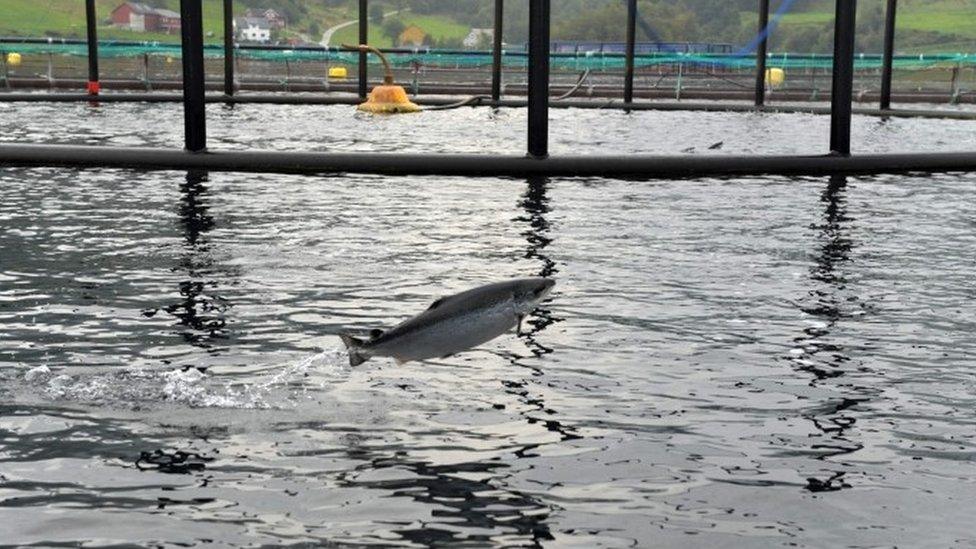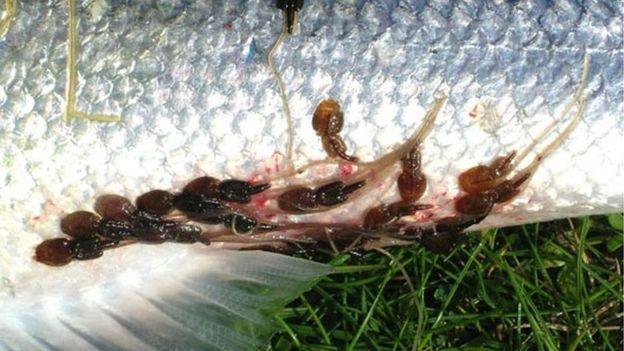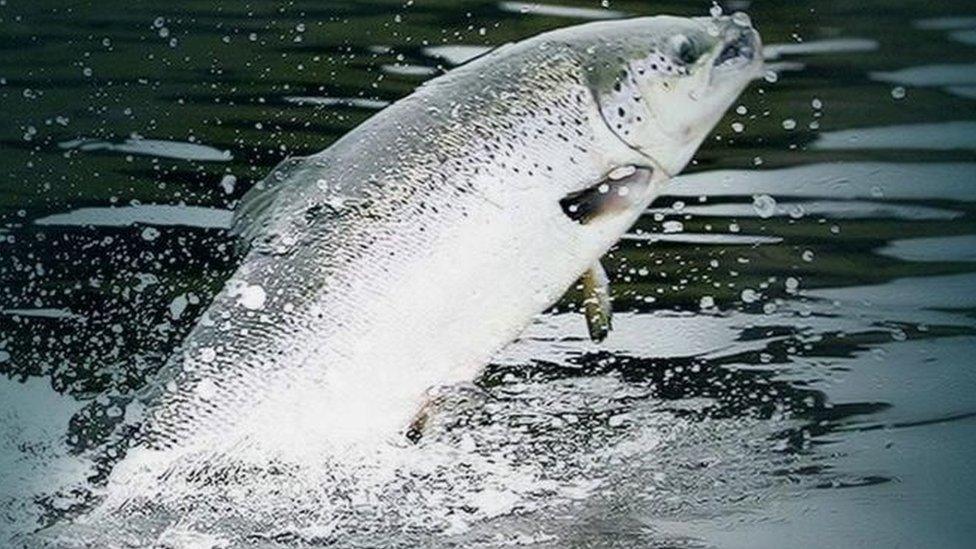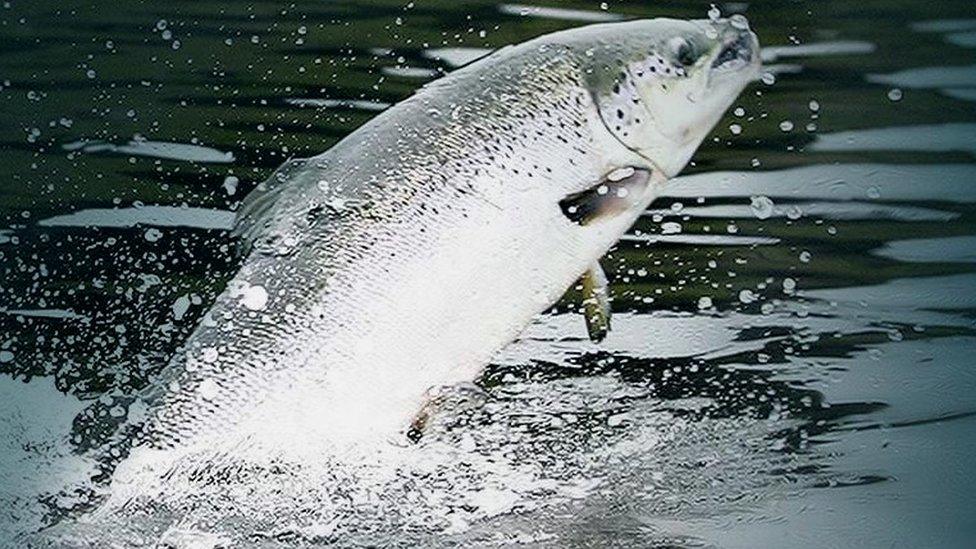Cage fighting
- Published

It's half a century since salmon farming began, with the pioneers in Scotland and Norway.
The first harvest, from Marine Harvest - then a branch of Unilever - was 15 tonnes hauled from Lochailort in Lochaber.
The haul now is closer to 170,000 tonnes per year. It's been quite a success story.
Scottish salmon has grown to be worth more than £600m at the fish farm gate, and more than a billion when it reaches retail. Two-fifths of output is sold overseas.
With more than 250 salt water sites and more than 2,200 directly employed, it's celebrated as a big contributor to remote west coast communities - even if profits go elsewhere, and much of the work is now automated.
Precautionary approach
A typical fish farm can now operate with six staff, whereas it used to have 24.
The product carries a premium over Atlantic salmon from other producers; Norway, Canada, Chile, the Faroes and Iceland.
And that's despite the strange decision of the six big producers not (yet) to get together and promote the brand in the way that Scotch lamb and beef are promoted.
So surely it's great news for the economy that there the government is targeting a rise in aquaculture production to 210,000 tonnes by 2020, and a doubling in tonnage by 2030?

Sea lice can weaken the health of salmon and their growth
Not everyone is so sure. Environment campaigners don't like the impact of fish farms on the surrounding environment. That includes other marine life in the loch, and above all, wild salmon migrating past the cages.
They take the precautionary approach, because so much is unknown about what goes on under the surface of the water: because the industry is so young: because we're not used to this density of fish in one place: because the tide and waves are powerful, sensitive, unpredictable distributors of environmental impact.
Critics make the case for pulling back on salmon production rather than letting it fly.
Corporate clout
But experts in the business end of salmon say it is already too constrained in Scotland.
Whereas it was a pioneer with Norway in the 60s and 70s, its production is now a small fraction of Norway's. And Norway is where you find much of the corporate clout in this industry, with the Oslo Borse as the place for the other kind of liquid salmon stocks.
Like whisky and oil, this is a success story largely owned by foreigners.
According to figures from the biggest producer, Marine Harvest - now a Norway-based company - corporate earnings per kilo of salmon produced are much lower in Scotland than they are in its other producing countries.

That may be for several reasons. One is the problem of sea lice, which appears to be afflicting Scotland particularly badly, with high mortality and a big cost in trying to find solutions.
Within the industry, the cost is causing some alarm, but there is an expectation that a solution will be found. They've faced crises before, and got past them.
They see themselves as catching up with land-based farming, where parasites and ticks abound, and where many centuries of experience with livestock has helped farmers understand how to handle such problems.
Privately, they'll admit that they grew too fast in the 80s and 90s, and didn't do their reputation any good that way.
More cautious
They're now more cautious and more scientific in their approach. They have experience of the devastating impact of infection on both fish mortality and on their business, most notably in Chile, where regulation has been lax.
The industry view is that low profitability in Scotland has more to do with scale. The limit for any one farm site in Scotland is 2,500 tonnes of biomass.
Because of the capacity constraint and with that premium price in its favour, the industry has responded by putting more into quality than quantity. Marine Harvest's use of fish meal and fish oil per tonne produced are consistently much higher than other producer countries.
Frank Asche, a professor at the University of Florida - and formerly of Stavanger - believes Scotland has lost out because the critics of salmon farming are too influential with regulators.
He cites Ireland as another country which has let caution stunt the growth of its salmon production.
We are likely to see this debate opened up more widely and soon, with a Scottish government consultation on relaxing that maximum size.
It's a tricky balancing act, between economic impact, jobs, export performance, the environment, an industry that can put its investment elsewhere, and campaigners who are increasingly concerned at the impact this could be having on the natural environment.
- Published14 February 2017
